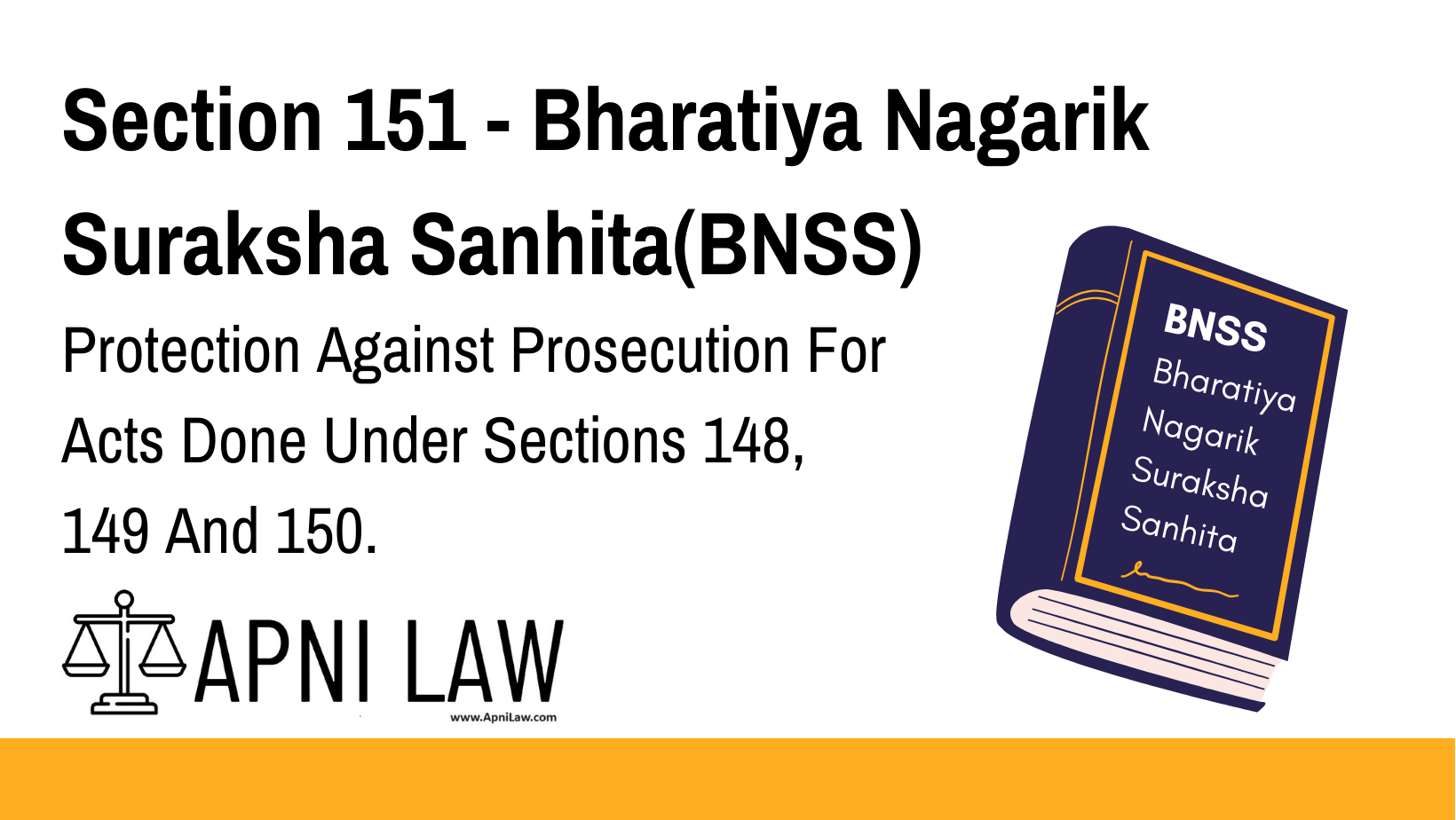Protection Against Prosecution For Acts Done Under Sections 148, 149 And 150.
Code: The exact code for this section is not provided in the context. You will need to refer to the specific BNSS legislation to find the accurate code.
Explanation:
This section of the BNSS deals with prosecution and protection for actions undertaken by officers and members of the armed forces during the execution of their duties, specifically related to sections 148, 149, and 150 of the code.
Key Points:
- Prosecution requires sanction: No prosecution can be initiated against any person for actions taken under sections 148, 149, or 150 without prior sanction. The sanction is granted by the Central Government for armed forces personnel and the State Government for others.
- Good faith protection: This section provides protection for individuals acting in good faith under these sections. This includes Executive Magistrates, police officers, individuals complying with requisitions, officers of the armed forces, and members of the armed forces acting under orders.
- No registration of cases against armed forces without inquiry: No case can be registered under Section 174 against armed forces personnel without a preliminary inquiry. This ensures that actions taken by armed forces personnel in obedience to orders are not automatically subjected to investigation.
- Arrest restrictions: The section further restricts the arrest of armed forces officers or members, or state police officers, for actions taken in obedience to orders. This necessitates obtaining consent from the Central or State Government before arrest.
Illustrations: on Protection Against Prosecution For Acts Done Under Sections 148, 149 And 150
Imagine a situation where the army is called upon to quell a riot (Section 149). An army officer orders his troops to use tear gas (Section 150). If someone were to allege that the use of tear gas was excessive or unlawful, this section would protect the officer and the troops, as they were acting under orders and in good faith to maintain order.
Common Questions and Answers:
Q: Who needs sanction for prosecution under this section?
A: Both officers and members of the armed forces, and any other individual acting under sections 148, 149, or 150. They will require sanction for prosecution.
Q: What if a police officer acts in bad faith under section 149?
A: The protection offered by this section is only available if the action was taken in good faith. If a police officer acts in bad faith, they may not be protected.
Q: Does this section guarantee absolute immunity from prosecution?
A: No, this section provides protection against prosecution without sanction. However, individuals may still be liable for their actions. This is if they are found to have acted unlawfully or in bad faith.










